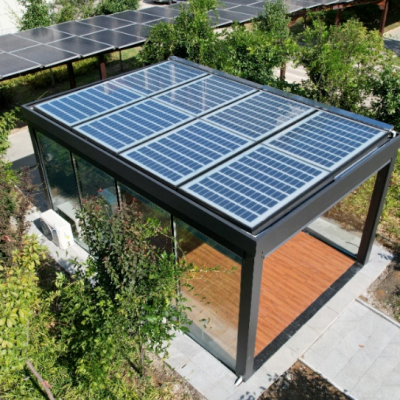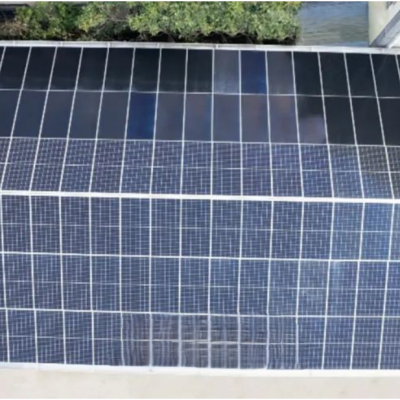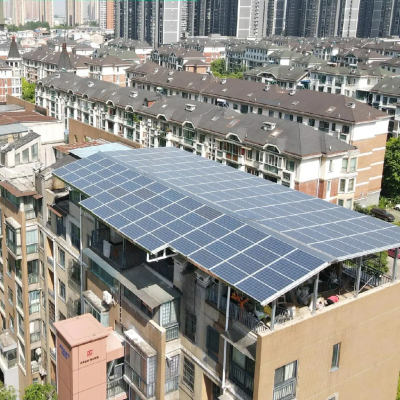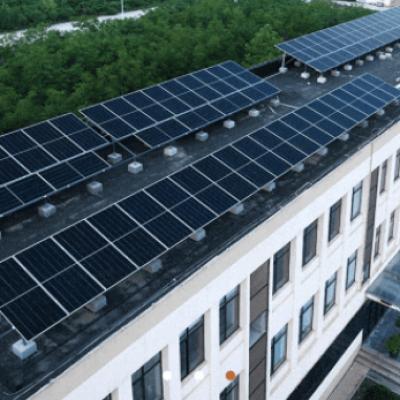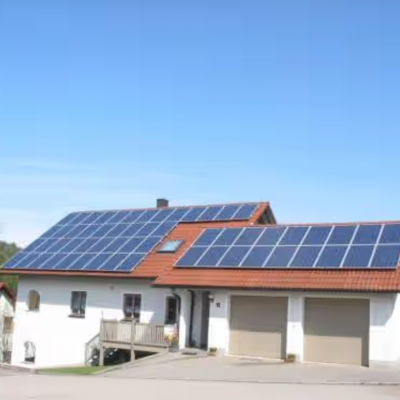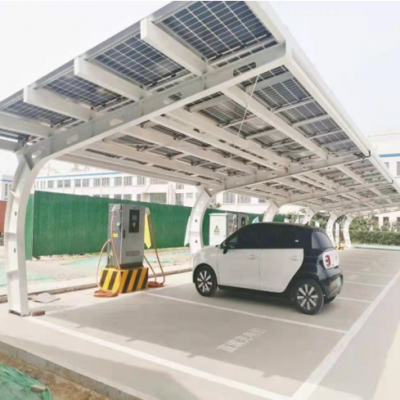12kW household hybrid photovoltaic energy storage
system
This is a household hybrid light storage
system provided by Yilin Company for customers. It mainly consists of
photovoltaic modules, energy storage batteries, energy storage inverters, brackets,
etc., aiming to achieve self-sufficiency in household energy, energy
conservation and emission reduction, and improve power supply reliability while
saving costs for users as much as possible.
Ⅰ Requirement analysis and planning
The design of a household solar energy
storage system first requires a detailed analysis of the energy demand of the
household, including the power of various electrical equipment, daily
electricity consumption, and distribution of electricity consumption. To
understand the electricity supply situation and pricing policy of the
household, the design plan is as follows:
According to the provided electricity
usage, the user's cumulative electricity load power is 8.2 kW, of which the
important load power is about 3.6 kW; The average electricity consumption
during the day is about 10 kWh, and the average electricity consumption at
night is about 20 kWh; This plan is to install a household photovoltaic storage
and off grid system. During the day, the photovoltaic system generates
electricity to supply the load, and the remaining photovoltaic electricity is
stored in energy storage batteries. If there is no photovoltaic power
generation or during the night, the battery is discharged to supply the load.
When the photovoltaic power generation is insufficient to meet the load, it
will be supplemented by the power grid; When the power supply of the grid is
unstable or there is a power outage, the energy storage system discharges to
meet the off grid electricity needs of some important loads.
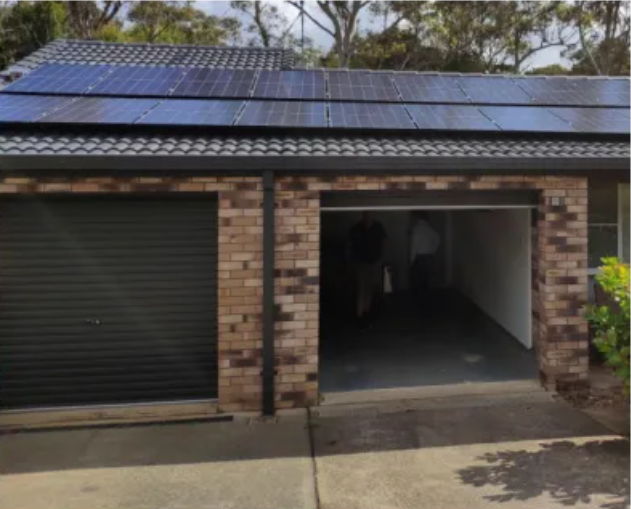
Ⅱ System
configuration and selection
According to the electricity consumption
situation, the total power of the user is 8.2 kW, with a daily electricity
consumption of about 30 kWh. It is recommended to install a photovoltaic
capacity of 12 kW, with an average daily power generation of about 36 kWh,
which can meet the overall electricity demand of the user; At night, users
consume about 20 kWh of electricity. Considering the fluctuation of users'
daytime electricity consumption and off grid backup power demand, some reserves
need to be considered. The energy storage battery is configured with 25kWh, and
at full capacity, it can meet a 3.6kW load operation of about 7H when off grid.
1. Selection of
photovoltaic modules
Choose the appropriate type of photovoltaic
module (such as monocrystalline silicon, polycrystalline silicon, or thin-film
modules), considering factors such as efficiency, lifespan, and cost. Ensure
that photovoltaic modules can adapt to local climate and lighting conditions;
This time, 21 single crystal 580Wp components were used, with an installed
capacity of 12.18kWp.
2. Energy storage
system configuration
Determine the type and capacity of energy
storage batteries, commonly used battery types include lead-acid batteries,
lithium-ion batteries, and lithium iron phosphate batteries; Considering
factors such as battery life, cost, safety, and charging and discharging
efficiency, lithium iron phosphate batteries are used in this project. The
stacked solution consists of battery management system modules and battery
modules, which are more flexible and reliable to integrate. The single battery
module has a capacity of 5.12kWh and a protection level of IP65, suitable for
multiple environmental scenarios; The designed capacity of this battery is
25.6kWh, consisting of 5 stacked battery modules.
3. Inverter
selection
The inverter adopts a DC coupling scheme
product, and the photovoltaic inverter and bidirectional converter are
integrated into a photovoltaic storage integrated machine, which is directly
connected to photovoltaic modules, power grids, batteries, etc., forming a
whole with higher integration and reduced system integration failure rate. When
the photovoltaic system is in operation, the generated electricity can be used
to charge the battery through the photovoltaic storage integrated machine, or
to supply power to the load or input into the grid.
According to the user's cumulative
electricity load power of 8.2 kW, important load power of about 3.6 kW, and
photovoltaic power of 12.18 kWp, a 10 kW photovoltaic storage and off grid
integrated machine is used, with a maximum photovoltaic input power of 15 kW
and an AC off grid output of 10 kW, meeting the needs of photovoltaic and load
access; Protection level P65, with off grid switching function, switching
time<10ms.
Note: The selection of inverter power for
pure off grid systems should consider the starting power of the load to avoid
overload.
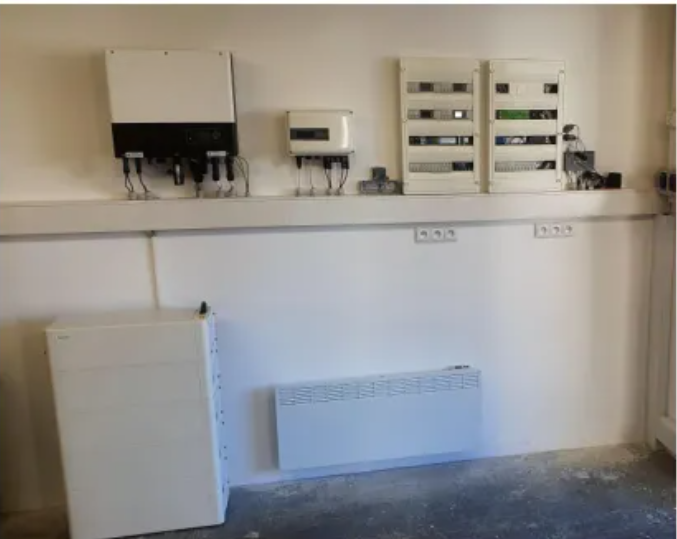
Ⅲ System
Design and Integration
1. Photovoltaic
system design
Design the layout and arrangement of
photovoltaic modules to ensure maximum light reception; Determine the structure
and installation details of the support system, considering roof load-bearing
capacity and safety; For household systems, photovoltaic systems can be
installed with flat or raised brackets according to the type of roof; A total
of 21 580Wp photovoltaic modules are connected to the inverter's dual string
interface using a dual string configuration.
2. Energy storage
system design
Design the installation location and
connection method of energy storage batteries to ensure the safe and efficient
operation of the battery pack. Configure a battery management system to monitor
and manage the status of batteries.
This energy storage system consists of one
10kW energy storage inverter and one set of 25.6kWh energy storage battery
system. The energy storage inverter is wall mounted, and the energy storage
battery system consists of a battery management system module and a battery
module. It is stacked and floor mounted, with an IP65 protection level, and
supports indoor and outdoor installation; The power lines of each battery
module are connected in series to the energy storage inverter, and also
connected to the communication line of the battery management system to
complete the power and communication connection.
3. System
integration
Organically integrate various components
such as photovoltaic systems, energy storage systems, and energy storage
inverters to form a complete solution. Consider the compatibility of each part,
communication protocol, and overall design optimization.
The photovoltaic 12.18kWp+energy storage
system with a capacity of 10kW/25.6kWh is configured for this photovoltaic
energy storage system.
Ⅳ Post
operation and optimization
Regular inspection and maintenance:
Regularly inspect photovoltaic modules,
inverters, batteries, etc. to ensure their normal operation; The inspection
includes visual inspection, electrical connection inspection, system operation
status inspection, etc.
Cleaning and maintenance:
Regularly clean photovoltaic modules to
ensure that their surfaces are free of dust, dirt, etc., and maintain high
photoelectric conversion efficiency.
Fault monitoring optimization:
Timely monitoring of system operation
status, fault monitoring, and operational data through cloud software; Based on
actual operating conditions, optimize and adjust the system to improve its
overall performance and efficiency.
Ⅴ Summary
In summary, ELINK provides users with
exclusive customized solutions, covering multiple aspects such as requirement
analysis, equipment selection, system design, construction and installation,
and later operation and maintenance in the design process. Through scientific
design and construction, it can ensure the smooth implementation of the project
and achieve the expected goals of energy conservation, emission reduction, and
economic benefits; In the specific design process, detailed planning and adjustments
need to be made based on the actual situation of the family and local policy
requirements.
